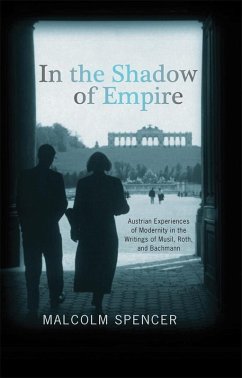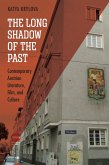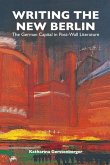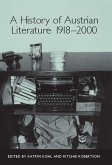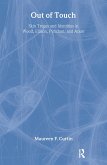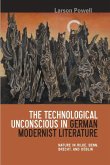The first book to consider together the responses of the great Austrian writers Musil, Roth, and Bachmann to the crisis of modernity.
Austria was not the only European country whose old order disintegrated in the early twentieth century, giving way to the crisis of modernity, nor the only country whose literature bears the marks of this crisis. But modernity's onset was experienced differently in Austria: in the words of Karl Kraus, it served as "laboratory for the fall of world civilization." This book examines the crisis as reflected in fiction written by Robert Musil, Joseph Roth, andIngeborg Bachmann between 1920 and 1970. After examining the elusive concept of modernity, Malcolm Spencer looks at the responses of the three authors to the central themes of modernity: fragmentation, nationalism, the end of empire, and ambivalence. Chapters on Musil examine his understanding of the ancien régime in Austria and his analysis of the ideological stage of modernity. Spencer then considers Roth's more negative reaction, showing the post-imperial novel Radetzkymarsch to be a nostalgic response to the collapse of Habsburg Austria and the rise of fascism. The final chapter looks again at the end of empire, not in the work of writers who lived through it, but through that of one who experienced it as a historical and cultural legacy: Ingeborg Bachmann.
Malcolm Spencer is a Teaching Fellow at the University of Birmingham.
Austria was not the only European country whose old order disintegrated in the early twentieth century, giving way to the crisis of modernity, nor the only country whose literature bears the marks of this crisis. But modernity's onset was experienced differently in Austria: in the words of Karl Kraus, it served as "laboratory for the fall of world civilization." This book examines the crisis as reflected in fiction written by Robert Musil, Joseph Roth, andIngeborg Bachmann between 1920 and 1970. After examining the elusive concept of modernity, Malcolm Spencer looks at the responses of the three authors to the central themes of modernity: fragmentation, nationalism, the end of empire, and ambivalence. Chapters on Musil examine his understanding of the ancien régime in Austria and his analysis of the ideological stage of modernity. Spencer then considers Roth's more negative reaction, showing the post-imperial novel Radetzkymarsch to be a nostalgic response to the collapse of Habsburg Austria and the rise of fascism. The final chapter looks again at the end of empire, not in the work of writers who lived through it, but through that of one who experienced it as a historical and cultural legacy: Ingeborg Bachmann.
Malcolm Spencer is a Teaching Fellow at the University of Birmingham.
Dieser Download kann aus rechtlichen Gründen nur mit Rechnungsadresse in A, D ausgeliefert werden.

